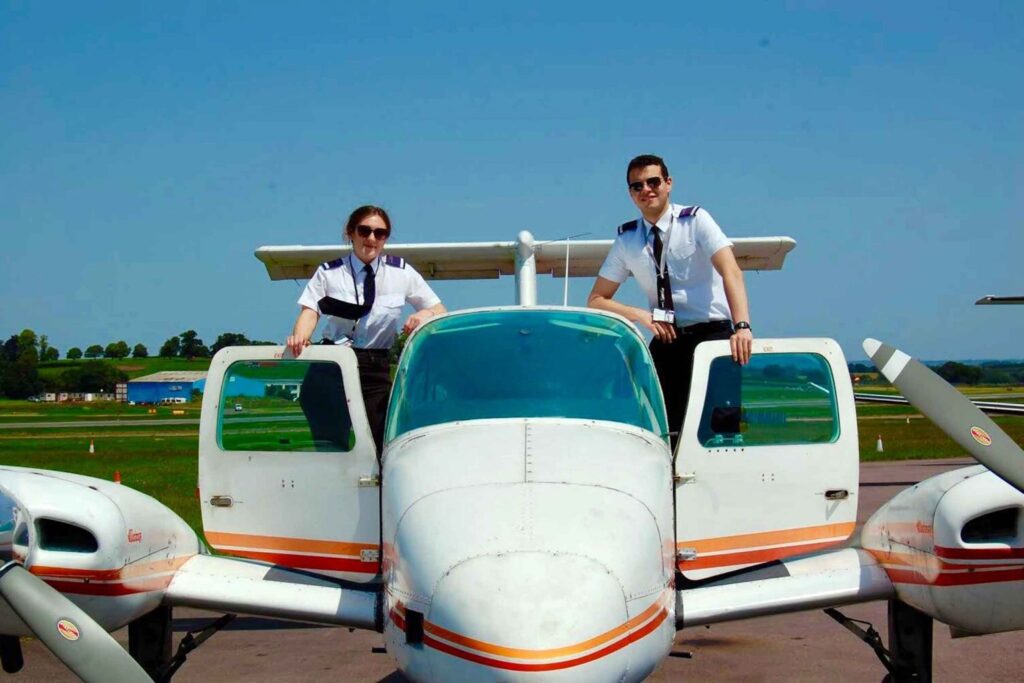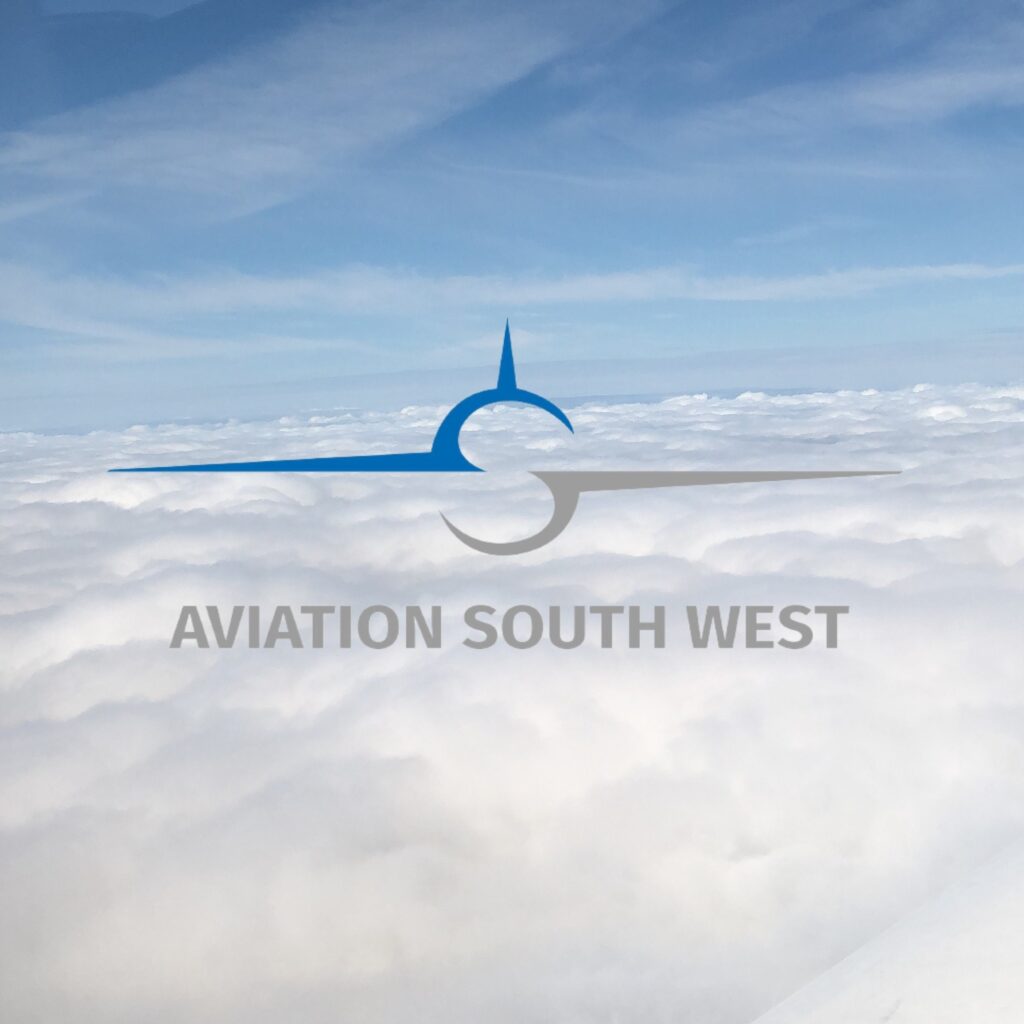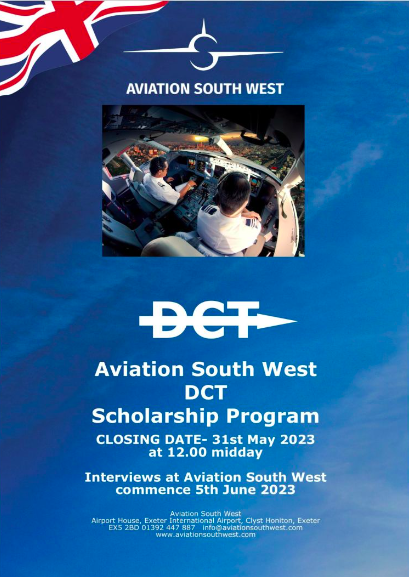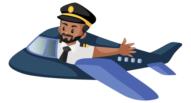Aviation South West Fully-Funded Flying Scholarship + EVERYTHING to Know
Aviation South West Fully-Funded Flying Scholarship + EVERYTHING to Know
It’s Official! An Exeter-based training provider Aviation South West have re-launched their fully funded 2023 DCT Scholarship Programme, intended to take a successful candidate “from zero experience to commercial pilot”. This was kindly launched in 2020 but due to COVID this was re-scheduled to be open in 2023. In this blog I will go over EVERYTHING you need to know about Aviation South West in order to put your best foot forward for the interview. I would highly encourage everyone reading this to apply.
This blog contains 95% of information you will find across Aviation South West’s website, social media pages (Twitter, Facebook, LinkedIn), annual/privacy policy reports and Company House, UK. I hope this helps. Enjoy!



More on the scholarship….
Covering both UK CAA and EASA licenses, tuition will commence at Aviation South West’s facility at Exeter International Airport (EGTE) before concluding at Malta International Airport (LMML), where the EASA license will be awarded. A total of 227 hours of flight training are provided and the entire process is estimated to take around 12-18 months.
“We are aware that the cost of flight training prevents many young people from entering this profession, so are offering this once in a lifetime opportunity to enable them to achieve their dreams,” explained a spokesperson from Aviation South West.
The DCT Scholarship is open to those aged between 17 and 25 “with little or no flight experience and up to a maximum of five flight hours logged,” although candidates must possess the right to live and work in the UK.
Aviation South West was founded at Exeter International Airport in 1999 and “many lessons at [the] aviation school are geared towards those who wish to obtain a commercial license,” typically including instruction on aircraft types such as the PA-28 Warrior and the PA-28R Arrow. ATPL ground school classes are also conducted onsite. A secondary location in Malta also allows students to “take advantage of the great weather on offer all year round”.
Applications close at midday on 31 May 2023, and interviews will commence on 5 June 2023. The successful candidate will commence training on August 1, and the entire course must be completed by March 2025. More information on the scholarship can be found here, and to apply, please contact [email protected]
About Aviation South West
Aviation South West has two sites – one based in Exeter and the other in Malta. The address is as below:
Aviation South West, Airport House, Exeter Airport, Exeter, EX5 2BD
Aviation South West, 1B Centre Building, Malta International Airport, Malta, LQA 4000
Opening Hours: Monday to Sunday (08:30 – 17:30)
(As of Feb 2023 – accessed on Company House) – address change from Aileron House, EX5 2BD to Airport House, EX5 2BD.
- Founded in 1999
- Facebook: “No 1 Pilot Training Centre in the South West“
- LinkedIn: “EASA Modular Flight Experts”.
- Purchased by the McLaird family in 2015
Company size: Up to 50 employes (22 employees)
- First ATO to train on RNAV and LNAV approach standards in professional pilot training.
- It was also the certifying organisation for the 3 RNAV and VNAV approaches in the UK.
- World Class flight school in the South West
- Feb 2021 – ASW becomes an approved EASA examination centre
- Independent, family-run
- On-to-one training with some of the best instructors
- Malta base from Sept 2021.
- Success stories: BA, TUI, Ryanair, ExecuJet, DHL and more.
“An Organisation Supporting Students In Times Of Need:
2023: Following collapse of Teeside + FTA Global
2020: Working with DWP to offer financial support to unemployed pilots (for revalidations, MPL conversion, ATPL Theory, FI potential)
2023 and 2020: ASW DCT Scholarship for low-hour cadets who cannot afford to fly
Former Success Stories (dating back to 2019 as featured on their Facebook page):
- Marc – First Officer at TUI
- Louie – First Officer at Ryanair
- Baljeet – First officer at Ryanair
- Ginni – First Officer at Ryanair
- Connor – First Officer at Aer Lingus
- Michael – First Officer at Wizz Air
- Abdulla – First Officer at Jazeera Airways
- Zak – First Officer at Fly Wales
- Josh – First Officer at Ryanair
- Duo – First Officer at Ryanair
- Michael – First Officer at Ryanair
- Connor – First Officer at Ryanair
- Chris – First Officer at Ryanair and FI at ASW
- Thomas – First Officer at Ryanair
- Alex – First Officer at British Airways
- George – First Officer at Flybe previously
- Alex – First Officer at Flybe previously
- Nathan – First Officer at TUI
- Luke – First Officer at Lauda Europe
- Connor – First Officer at Emerald Airlines
Recent News you should definitely mention! –
- Addition of Aquila A211GX to existing Malta fleet (2023)
Who is the reporting persons from their Privacy Policy report (accessed: June 2023)
- Data protection officer: Anne McLaird
A summary from the Terms and Conditions report – Jan 2022.
- Full time and Part time courses: 6 hours study per day / 5 days per week.
- 90% minimum attendance to course
- 2 days off per month based on 48 hours’ notice prior.
- Schedule for next day is published 18:00 the day prior.
- Typical slots: 2x 90 hour slots or a single 4 hour slot flying/ 1-2-1 tuition
- Fail to attend: £150 fine.
- If a student decides to change the start date of a course at least 14 days’ notice must be given.
- If the start date is changed the student will be charged a £1500 re-arrangement fee unless there are exceptional circumstances (under sole discretion of ASW).
- At least 48 hours notice must be given to change any details during course (ie. Start of second part of course). The notice must be in writing.
- Bookings to be made via Shlott online booking system.
- A cancellation may be charged if hirer of aircraft cancels with less than 48 hours notice.
- A cancellation by person or telephone must be confirmed to Aviation South West by email.
Standards of Behaviour and Cadet Expectations
- Wear pilot uniform and maintain high standards of dress appearance whilst on premises.
- Professionalism and polite manner
- Use of mobile phone: NOT permitted when in classroom or sim unless instructed.
- Food / drink: Under no circumstances unless in student lounge or outside
- Smoking: No.
- Alcohol: No consumptions within 12 hours of flight, sim or ground training.
- Use of drugs: Under no circumstances unless prescribed.
- Immediate dismissal and removal if caught with drugs. Fined £750.
Operations at Aviation South West
- Use SSR radar (secondary surveillance radar) at Exeter Airport which enhances safety in training
- Training location in UK and Malta
- UK CAA and EASA ATO
- International airport with ATC and Radar
- All courses delivered in-house
- Rural development programme for England: European agricultural fund for rural development – provided ASW with additional aircraft and in turn more jobs for locals.
- PPL in Malta: 4-6 weeks – UK CAA or EASA option
- ATPL: 6 months (Exeter)
Directors (derived from company house, UK) :
Anne Marie McLaird
- Director (appointed May 2018)
- Previously worked in charity and healthcare settigns
Andrew Charles McLaird
- Director (Appointed June 2015)
Stuart Edward McLaird
- Director (Resigned 2018)
Richard Syer Bristowe
- Director (Resigned 2015)
Melvin Jay Ocon Tayabas
- Director (Resigned 2015)
Staff
Andrew Charles McLaird
- FI, IRI FE (CPL, PPL),
- CRI (SEP, MEP), CRE (SEP, MEP),
- RT Examiner
Mark Annette (CFI)
- FI, IRI, CRI (SEP, MEP) FE PPL, CRE (SEP, MEP).
Oli Forfitt
- Senior FI (PPL)
Dave Burbridge
Fabio Natali
- FI
Howard Clayton
- Safety and Compliance
Kevin Leach
- FI
Matthew Hollingsworth
- FI
David Bryant
- ATPL Instructor
Aircrafts and Flight Sims
7 x PA-28 Aircrafts: Fixed undercarriage + 4 seat / PPL, IR and CPL
- G-BPPK
- G-BOTI
- 9H-FLY
- G-BXLY
- G-BNXE
- G-BNNZ
- G-BTSJ
1 x PA-28R: ‘Complex’ with variable pitch prop + retractable undercarriage / CPL
- G-OARC
1 x BE76 Duchess: 4 seat / twin engine / MEIR
- G-JLRW
1 x Cessna 150 Aerobat: UPRT / Hour building
- G-OMAS
Flight Sims:
1x BE76: IR
1x FNPT 11 – Frasca Flight Sim replicates the BE76.
1 x Citation Simulator
Direct to First Officer:
In Summary:
- 3 phases: One, Two and Three
- Phase 1: Basic training (PPL, night rating and building hours)
- Phase 2: Commercial at Exeter (ATPL with PadPilot)
- Phase 3: Commercial at Ex and Malta (CPL, MEIR, UPRT)
Summary of hours:
- PPL + NR = 45 hours + 5 hours
- Building hours = 121 hours
- ATPL: 650 hours theory
- CPL: 25 hours SEP
- MEP rating: 6 hours MEP
- IR: 47 hours (30 sim, 17 aircraft)
- UPRT: 3 hours C150
Hours spent: Theory (125), Sim (30), SE (199) and ME (23)
- Full time EASA modular
- 12-14 months
- Over 17
- Class 1 med
EASA/UK CPL:
- Passed their CPL or ATPL exams and wish to convert PPL to commercial license
- Minimum 150 hours, NR
- PA28 and PA28R
- Dual instruction (25 hours) – PA28 (20) and PA28R (5)
- Skills test: PA28R
- 4 weeks
At end of CPL: 200 hours (100 PIC, 20 cross country and cross country flight 300nm (two aerodromes with full stop landings).
EASA/UK Multi-engine CPL:
- Pre: 150 hours, NR
- PA28 and BE76 aircrafts
- Dual instruction (25 hours) – PA28 (20 hours), BE76 (5 hours)
- Skills test: MEP aircraft
At end of CPL: 200 hours (100 PIC, 20 cross country and cross country flight 300nm (two aerodromes with full stop landings).
MEP RATING
- Pre: EASA PPL and 70 hours PIC
- 2.5 hours: dual flight time in normal multi-engine setting
- 3.5 hours: dual flight time in asymmetrical setting (one engine)
- Written exam + licensed skills test
EASA/CAA Instrument Rating
- Operating under IFR
- Pre: PPL, night rating or CPL, 50 hours PIC cross country, ATPL passes,
Instrument rating: SE
- 50 hours instrument time
- Complete two modules: BIFM (basic instrument flight mod – 10) and PIFM (procedural instrument flight mod – 40)
- Skills test
Multi-engine instrument rating:
- 55 hours instrument time: 30 hours in sim
- BIFM (10) and PIFM (45) – sim (30) and aircraft (15)
Advanced Upset Recovery Course UPRT
- Coping with physio and psychological aspects of dynamic upsets
- Done to comply with Part-FCL 745.A
- 5 hours theory instruction + 3 hours dual flight instruction
European Agricultural Fund
- Aviation South West is part of the Rural Development Programme for England
- This is a European led initiative in coalition with the UK Government to support and invest into rural areas.
- Aviation South West is part of this programme benefitting from an additional aircraft.
- This in return has created jobs and investment for the Exeter locality – creating jobs for local people. Local students also benefit from training as well as an influx of students who invest in the local area.
‘Annual Cadet Course’ Cadet Programme – 12 to 15 year olds
- Experiencing the life as a pilot and learning fundamental skills.
- Find out if the career of being a pilot is for you!
- Cost: £200
- Age: 12 to 15
- 4 day course
- Latest session: April 2023.
- Activities range from basic aircraft ‘stuff’! (Learning about the basics of an aircraft, engine mechanics, instrument basics, pre-flight checks).
- Behind the scenes visits around the school, facilities and even the tower!
- Learning about the physics around how an aircraft flies. Preparing a Nav flight, using VFR followed by a real-life flying the route practical!
- Lastly, students are tested with a quiz and awarded certificates.
EGNOS at Aviation South West
- Existing LNAV approaches have limitations – such as the high MDA limits within their system.
- So other approaches that incorporate GNSS with low MDA that provide vertical guidance (like an ILS) without ground infrastructure were sought after.
- The technology that incorporates this is the RNP approach that sets down to LPV minima of 250ft and uses a GPS augmentation system – called EGNOS.
Exeter Airport receives funding to modify runways
- With the modification from GNSS to include LPV SBAS capability.
- This also included LNAV/VNAV procedures with vertical guidance.
- As a result ASW was the first to train pilots on the new system – RNAV LNAV approach and the certifying organisation for the installation of 3 RNAV/LNAV approaches in the UK
- ASW has been used as an advisory to the UK’s NAA examiner corps.
- ACCEPTA project – ASW received funding from the European GNSS agency to upgrade one Beechcraft BE76 and one Piper P28A from RNAV approach certification to EGNOS-based LPV approach
- The ASW simulator, FNPT II was also upgraded to mirror the same.
